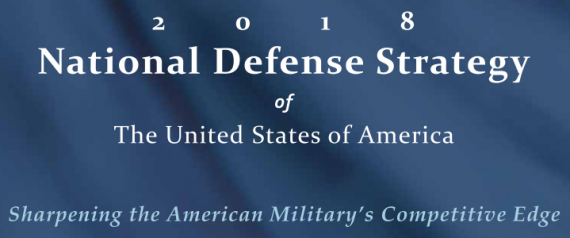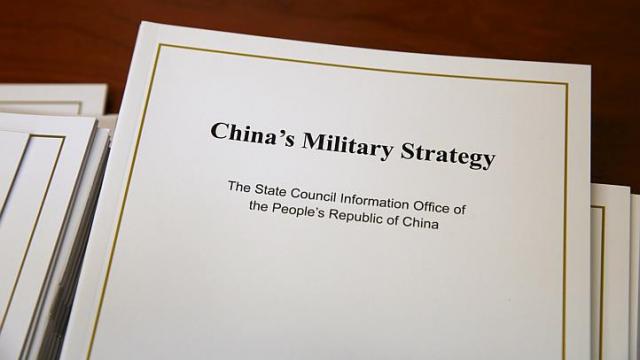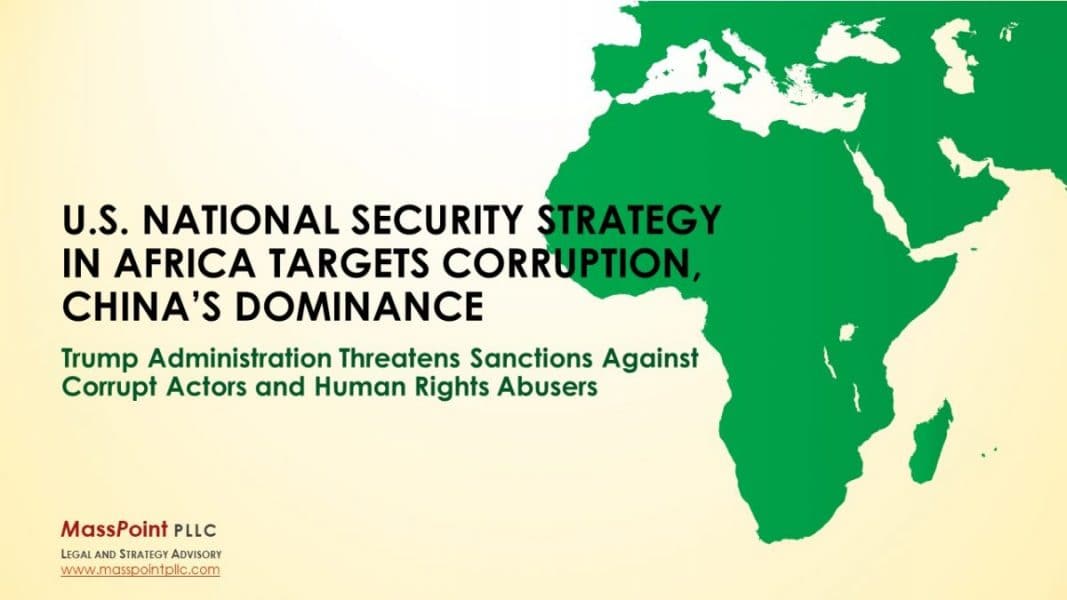
Domestic Crises Demand that America’s Needs Take Priority over Expensive Social Engineering Schemes Abroad
Doug Bandow / The American Conservative
(May 14, 2020) — The expense of policing the globe continues to increase as America’s relative economic dominance shrinks. While fans of Pax Americana have long argued that military outlays were but a small percentage of GDP and thus easily bearable, domestic crises require that America’s needs take priority over expensive social engineering schemes abroad. There simply isn’t enough money to go around.
Last year’s federal deficit was nearly $1 trillion. This year, because of the catastrophic economic shutdown and two coronavirus-inspired bail-outs, the deficit is likely to approach if not exceed $4 trillion.
Next year the red ink will still exceed $2 trillion. The impact of COVID-19 is likely to be felt even farther in the future, depending on the disease’s persistence and the speed of economic recovery. State budgets, too, are suffering; Illinois, facing pension calamity, already has requested a federal bail-out.
Yet Washington continues to play global hegemon, treating the entire world as its virtual playground. There is little the US does not do and pay for. The Pentagon acts as a welfare agency for populous, prosperous industrial states. Americans also pay — some military personnel with their lives — to rebuild failed states.
Finally, US policymakers episodically undertake exotic crusades, deciding to remove the foreign villain du jour, respond to the latest humanitarian crisis with the most social media mentions, or uphold United Nations rules normally honored only in the breach.
Defense is an inherent duty of government. So basic that the Constitution mentions provision “for the common defense” in the preamble. And responsibility is shared by both Congress and the president.
Often lost in Washington is the fact that the Founders meant defense of America, not everyone else. This does not mean the world is unimportant or irrelevant. Indeed, the US government should temper its actions to account for the impact on other peoples and countries.
Such concern remains a worthy objective, just not one around which the US should organize its foreign policy. The core must be representing and advancing the interests of those to whom the government is, or at least is supposed to be, accountable.

The most recent National Defense Strategy, issued in 2018, begins reasonably: “The Department of Defense’s enduring mission is to provide combat-credible military forces needed to deter war and protect the security of our nation. Should deterrence fail, the Joint Force is prepared to win. Reinforcing America’s traditional tools of diplomacy, the Department provides military options to ensure the President and our diplomats negotiate from a position of strength.”
The problem comes in the details. America has manifold interests, which is unsurprising for a superpower with global reach. However, most of them are of only modest importance. Few pose a security threat of any note. One reason the US became a superpower is because of its unique geographic advantages—oceans east and west, pacific neighbors south and north. Thus, most international problems really don’t matter much, and certainly not as much as to other states.
Merely looking at the globe shows why Afghanistan is not a critical concern for America. Nor is Iran. Nor North Korea. Even China and Russia look very different to Americans than to those two nations’ Asian and European neighbors. That doesn’t mean the US is invulnerable—think 9/11, as well as the existence of nuclear-tipped ICBMs. However, terrorism against the homeland remains difficult and largely derivative from foreign intervention. The threat of overwhelming retaliation so far has prevented any nuclear attack.
Most of what Washington does overseas is a matter of choice. That doesn’t mean such involvement is necessarily wrong. But most foreign intervention does not respond to any existential or even serious threat against America, its people, territory, prosperity, or liberties.
That is evident from formal American strategy and policy. The Trump administration’s strategy document complains of “increased global disorder,” but in and of itself that does not warrant a military response.

For instance, consider the paper’s description of the threat environment: “China is a strategic competitor using predatory economics to intimidate its neighbors while militarizing features in the South China Sea. Russia has violated the borders of nearby nations and pursues veto power over the economic, diplomatic, and security decisions of its neighbors. As well, North Korea’s outlaw actions and reckless rhetoric continue despite the United Nations’ censure and sanctions. Iran continues to sow violence and remains the most significant challenge to Middle East stability. Despite the defeat of ISIS’s physical caliphate, threats to stability remain as terrorist groups with long reach continue to murder the innocent and threaten peace more broadly.”
Intimidating one’s neighbors is bad behavior, but not obviously threatening to America. Although Russia is a malign actor, intimidating its neighbors and violating their borders does not presumptively matter to the US “Outlaw actions and reckless rhetoric” by a poor, isolated, weak nation half a world away normally would not top any country’s threat list.
Similarly, encouraging violence and instability in a violent, unstable region where America’s allies — think Saudi Arabia — are even more violent and destabilizing fails to meet any definition of serious threat. And a terrorist group which has never directly attacked the US and is surrounded by enemies warrants concern, not a dominant place in Pentagon planning.
The problem also is reflected in the administration’s formal objectives. For instance, “defending the homeland” tops the list, as it should. Listed separately is “Deterring adversaries from aggression against our vital interests.” The question is, what interests are vital which are not related to the homeland’s protection?
Perhaps not allowing a hegemonic, hostile power to dominate the oceans or monopolize energy supplies? Neither is threatened nor particularly plausible. Simultaneously dominating Europe and Asia? That also is highly unlikely, especially when the two continents sport seven actual and several potential nuclear powers.
Instead of focusing on truly essential issues, there is a tendency in Washington to declare everything to be vital: protecting South Korea, defeating the Taliban, containing Iran, assisting Ukraine, fighting terrorism in Africa, ousting the Syrian government, joining Saudi Arabia’s aggressive war against Yemen. When everything is vital, nothing is vital. Yet Washington engages in endless threat inflation, where the slightest geopolitical inconvenience is said to require military action.

Another dubious objective is: “Defending allies from military aggression and bolstering partners against coercion, and fairly sharing responsibilities for common defense.” Traditionally alliances were thought of as a means to protect America from aggression. The administration treats alliances as an end, with allies considered the equivalent of Facebook friends, to be accumulated wildly and endlessly to impress others.
“Allies” such as Montenegro and North Macedonia need not contribute anything to the common or, more importantly, America’s defense. These “allies” increase US military responsibilities without offering any corresponding benefits.
Consider another goal: “Maintaining favorable regional balances of power in the Indo-Pacific, Europe, the Middle East, and the Western Hemisphere.” What that means in the vernacular is dominate the world. Everywhere against everyone, except in Africa and Antarctica, apparently.
But is such domination really necessary for American security? Even if advantageous, is it worth the cost? Military spending is the price of one’s foreign policy. The more you want to do the more force structure you need. And the only way to prove one’s dominance is to fight occasional wars, which are costly, both in human life and resources. Many things might be possible, but that doesn’t mean they are prudential.
Moreover, this objective ignores the reactions of other nations. The administration insists on dominating the Western Hemisphere, the normal reaction of any great power: However, America is not the only country that wants to ensure a safe neighborhood. China, India, and Russia, at least, have a similar objective, no matter how they express it.
If they also are determined to maintain a favorable regional balance of power in their regions, then America’s attempt to dominate will grow exponentially more expensive, especially in a world with nuclear weapons. Projecting power is more expensive than deterring use of power. How much is Washington ultimately willing to pay to be able to defeat Russia and China on their borders? Especially if Moscow and Beijing decide to spend as much as possible to ensure that does not happen.

Then there is the goal: “Dissuading, preventing, or deterring state adversaries and non-state actors from acquiring, proliferating, or using weapons of mass destruction.” Again, an understandable desire, but one in conflict with the previous objective. If Washington is determined to control most every region, and to use that power to force regime change whenever it desires for whatever reason it desires, which is current policy, then even impoverished states have an incentive to develop nuclear weapons.
Hence the dilemma with Iran and North Korea. Neither has shown suicidal tendencies. Neither plans to attack America. Rather, both want to deter the US The harder Washington presses and the more it threatens in attempting to enforce nonproliferation, the more these and other nations have an incentive to develop weapons of mass destruction. When developing its nukes even Indian policymakers considered the importance of forestalling any American attempt at coercion.
The Defense Department cited Iran and North Korea alongside China and Russia as nuclear threats which must be deterred in its report on “Nuclear Deterrence: America’s Foundation and Backstop for National Defense.” Yet that gets the former two, at least, entirely backwards. America possessed nuclear weapons before its professed adversaries — indeed, before North Korea even was a state. If they are threats now, it is only in the sense of being able to retaliate if attacked by the US. Here, again, Washington’s determination to dominate most of the globe generates new threats.
We still don’t know how much COVID-19 will change the world. However, it will strain the budget of every nation. The US needs to dramatically rethink its foreign policy, especially its international ambitions. Increasingly, policymakers are likely to discover that they just don’t have enough money to continue attempting to run the world.
Doug Bandow is a Senior Fellow at the Cato Institute. A former Special Assistant to President Ronald Reagan, he is author of Foreign Follies: America’s New Global Empire.
Posted in accordance with Title 17, Section 107, US Code, for noncommercial, educational purposes.